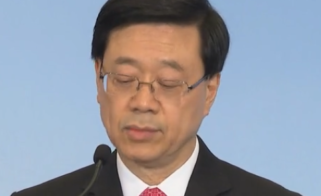Every employee who contributes to the Mandatory Provident Fund (MPF) can choose an account manager.
After that, however, the employee has no control over which specific investment the fund manager picks.
How then will employees protect themselves if a company in which their fund manager has invested their money has questionable corporate governance?
In a multi-layer investment chain, depositors, asset owners or investors, asset managers and investment firms operate separately from one another.
Investors have little contact with the company they invest in.
Asset managers may lack deep understanding of the culture and strategy of their target company, which usually leads to a short-sighted investment approach.
This is harmful to the long-term development of the market and ultimately the real economy.
At present, investors and companies have made big progress in narrowing the gap.
Intelligent shareholder voting and company engagement have become the new norm.
In the past, Asian companies were reluctant to talk to investors. Not anymore.
We have seen company boards show interest in shareholder engagement.
London Business School scholar Elroy Dimson and other top academics have found that US-listed companies that arey engaged with their institutional investors made a cumulative return of 7.1 percent between 1999 and 2009.
Also, share prices of engaged companies outperformed their peers by 4.4 percent on average, according to a study by Andreas Hoepner, an associate professor of finance at ICMA Center of Henley Business School.
The Securities and Futures Commission (SFC) has adopted the principles of responsible ownership rather than stewardship.
Market participants in Hong Kong are quite aggressive and some MPF contributors have limited interest in knowing the companies they invest in.
Some individual investors only know the stock code of these companies.
And they have shown little interest in digging more information as long as the stock itself or its derivatives generate profit.
Also, there are not many occasions for investors to interact with senior company executives outside of shareholder meetings.
The SFC has launched a consultation on proposed principles of responsible ownership, which require investors to fulfill their ownership responsibilities in relation to their investment in a listed company.
In fact, many exchanges have asked listed companies to report environmental, social and governance (ESG) initiatives to help people make investment decisions.
So far, securities exchanges in 23 countries have joined the sustainable stock exchanges (SSE) initiative.
The initiative has more than 20,000 listed companies with a combined market value of over US$40 trillion.
ESG disclosure and sustainable development strategy could demonstrate transparency, risk awareness, strategic thinking and active governance capability to outsiders.
Investors and asset managers value these metrics when choosing which company to invest in.
In China, an increasing number of Chinese companies listed in Shanghai or Shenzhen have begun to produce corporate social responsibility (CSR) reports.
However, many foreign investors have found that the information disclosed is more of a gesture than anything that has a real impact on a company.
Different markets have adopted different approaches to ESG reporting.
For example, the Australia Stock Exchange has updated its non-financial disclosure requirements and requires companies to disclose if they have material exposure to “environmental and social sustainability risks” and how they plan to manage and mitigate these risks.
The Singapore Stock Exchange is considering guidelines from an impact perspective.
The Hong Kong stock exchange also has set out “comply or explain” provisions.
ESG and sustainable growth reports should not be box-ticking homework for companies.
Investors should not simply treat responsible ownership as a compliance issue.
Professional and responsible investors should also take into account the regulatory picture, shareholder structure and company culture and adjust their strategy to support positive change in their companies.
This article appeared in the Hong Kong Economic Journal on Nov. 24.
Translation by Julie Zhu
